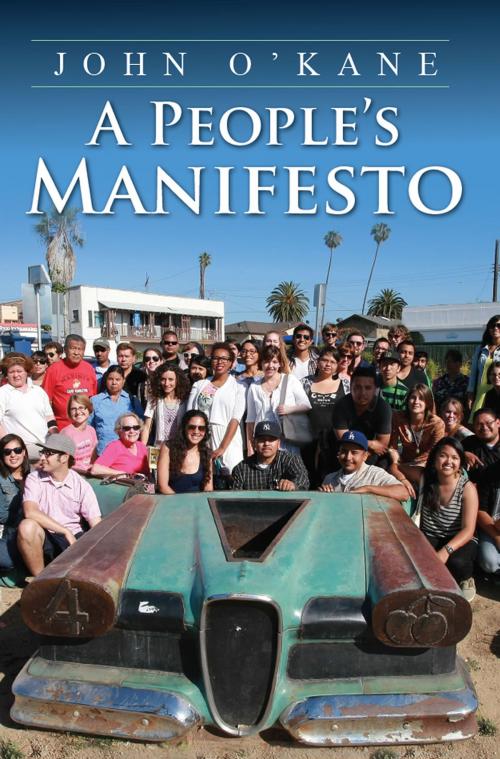A People's Manifesto
Nonfiction, Reference & Language, Language Arts, Journalism, Social & Cultural Studies, Political Science| Author: | John O'Kane | ISBN: | 9781506904672 |
| Publisher: | First Edition Design Publishing | Publication: | October 15, 2017 |
| Imprint: | First Edition Design Publishing | Language: | English |
| Author: | John O'Kane |
| ISBN: | 9781506904672 |
| Publisher: | First Edition Design Publishing |
| Publication: | October 15, 2017 |
| Imprint: | First Edition Design Publishing |
| Language: | English |
Populism is all the rage these days. Bloggers and journalists from across the political spectrum are obsessed with "the people," citizens with already limited power and resources who've suffered severe setbacks from the big Recession of 2008 whose effects continue to this day. Are those representing the people doing them justice? Do they talk to the people enough and know what's in their heads? Given the distrust among many toward the elite and resentment for their exclusion, are conversations meaningful? The people realize the elite don't represent their interests, and have taken advantage of the information revolution to figure the system and their fates in it themselves. This is not to say that the people are beyond error and contradiction, a seamless mindset with all the answers, transparent repositories of truth. This book is a work of literary journalism that investigates how non-experts and outsiders without access to the "facts" make sense of these times and pass along knowledge--not mere information--that catalyzes others to understand and act. They can express their opinions through a variety of venues, even op-ed writing, and reinterpret numerical "facts," think through the values that sustain them while producing stories that make common sense to people in a moral context. The book is divided into two parts. The first, Chapters 1 through 5, is a series of conversations with a variety of people who have differing lifestyles and political orientations, and whose voices have been virtually ignored. The second is a sampling of op-ed pieces written in Huffingtonpost and other publications over the course of the past ten years about the issues that the citizens in part one discuss and react to. These are in chronological order and in response to the post-recession crisis as it evolved, and mostly left in their original form. Together this writing sheds light on how our polarized society evolved.
Populism is all the rage these days. Bloggers and journalists from across the political spectrum are obsessed with "the people," citizens with already limited power and resources who've suffered severe setbacks from the big Recession of 2008 whose effects continue to this day. Are those representing the people doing them justice? Do they talk to the people enough and know what's in their heads? Given the distrust among many toward the elite and resentment for their exclusion, are conversations meaningful? The people realize the elite don't represent their interests, and have taken advantage of the information revolution to figure the system and their fates in it themselves. This is not to say that the people are beyond error and contradiction, a seamless mindset with all the answers, transparent repositories of truth. This book is a work of literary journalism that investigates how non-experts and outsiders without access to the "facts" make sense of these times and pass along knowledge--not mere information--that catalyzes others to understand and act. They can express their opinions through a variety of venues, even op-ed writing, and reinterpret numerical "facts," think through the values that sustain them while producing stories that make common sense to people in a moral context. The book is divided into two parts. The first, Chapters 1 through 5, is a series of conversations with a variety of people who have differing lifestyles and political orientations, and whose voices have been virtually ignored. The second is a sampling of op-ed pieces written in Huffingtonpost and other publications over the course of the past ten years about the issues that the citizens in part one discuss and react to. These are in chronological order and in response to the post-recession crisis as it evolved, and mostly left in their original form. Together this writing sheds light on how our polarized society evolved.















